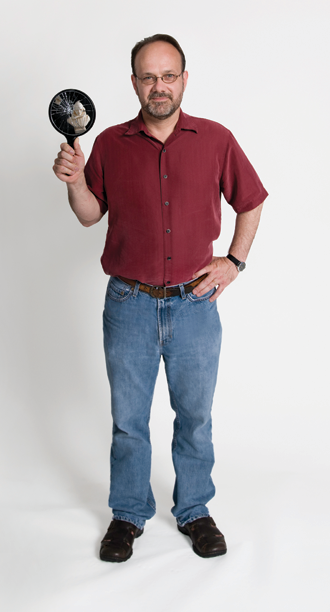Through the Looking Glass

All good teachers want to give their students something to reflect upon. Once a semester, English professor Sergei Lobanov-Rostovsky takes that mandate more literally than most. On the day his Shakespeare class will be analyzing the deposition scene in Richard II, he extracts a hand mirror from the boxful stashed in his office and brings it with him to class. It won't be coming back.
To enact the scene in which Richard is stripped of his kingship, two props are essential: a crown and a mirror. When Richard loses the first, he calls for the second, demanding to see in his image the change in his stature and the pain he suffers. Perceiving his image unaltered, he dashes the mirror against a wall, compelling the crazed shards to reflect back to him the image of a broken king.
For the class, just one prop will suffice. The mirror Lobanov-Rostovsky produces will crystallize for the students this disparity between interior truth and exterior appearance. As the glass passes from hand to hand, students discuss the experience of viewing and of being viewed. They come face to face with the mirror's distortions of reality, extending those perceptions to the "mirror" that theater holds up to society.
Then comes the moment of truth: as in the play, the mirror is shattered and passed a second time. Now the students' experience is distinctly different from Richard's: the fragmented, incoherent image reflected in the broken glass shows the students yet more clearly what they are not. As the students talk about this phenomenon, they stumble upon one of the notions Lobanov-Rostovsky wants them to take from the class. "They're struck by the contrast: They feel more whole than the image--just as an audience, in a moment of Aristotelian catharsis, feels healed by contrast with the dispossessed Richard," he says.
For many students, it's an "aha" moment. A buzz rises from the class, heads nod in token of ideas coalescing. Like a mirror or a tragic play, a great class works by reversal and compression, begging us to analyze (literally, break down) what we see. Upon reflection, it's what a seminar in its best moments is all about.

 Delicious
Delicious Facebook
Facebook StumbleUpon
StumbleUpon Digg
Digg reddit
reddit